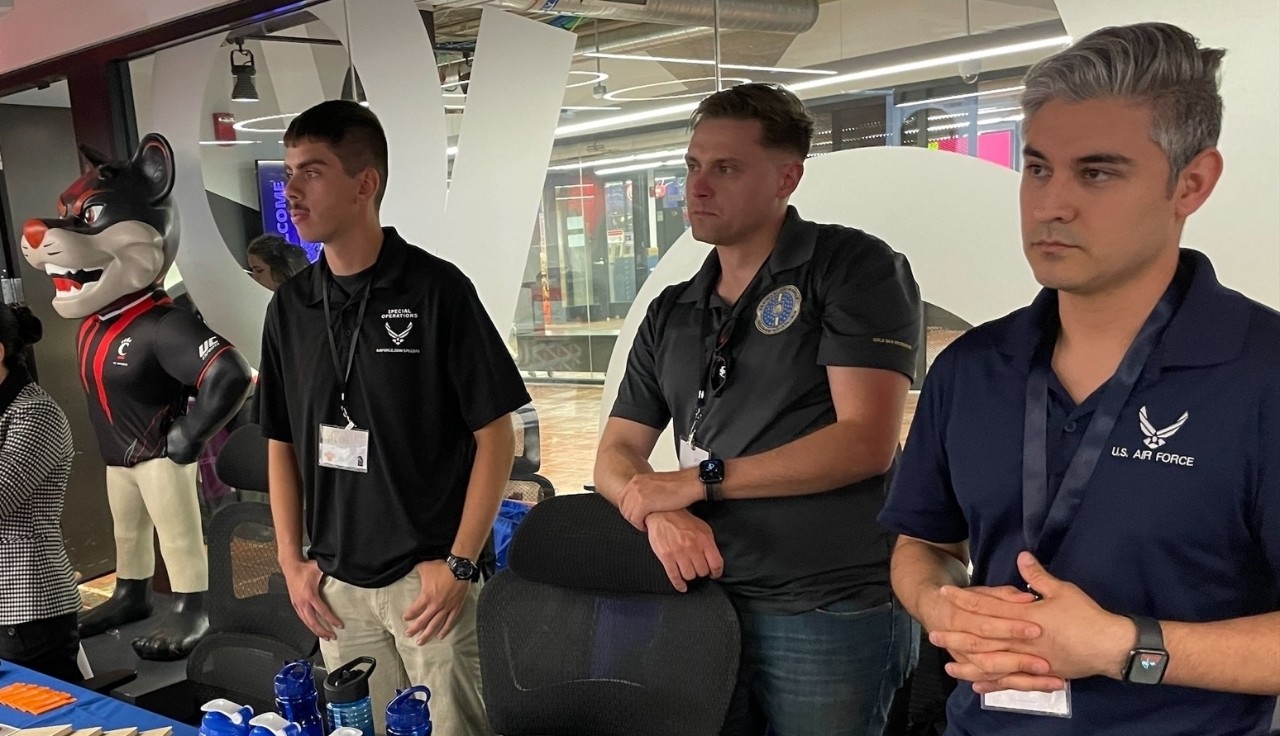
Game-changers shape tech through Esports
Employers scout neurodivergent students at UC's 1819 Innovation Hub
The Esports Innovation Lab at UC’s 1819 Innovation Hub pulsed with energy, not from a championship match, but from an opportunity to change lives.
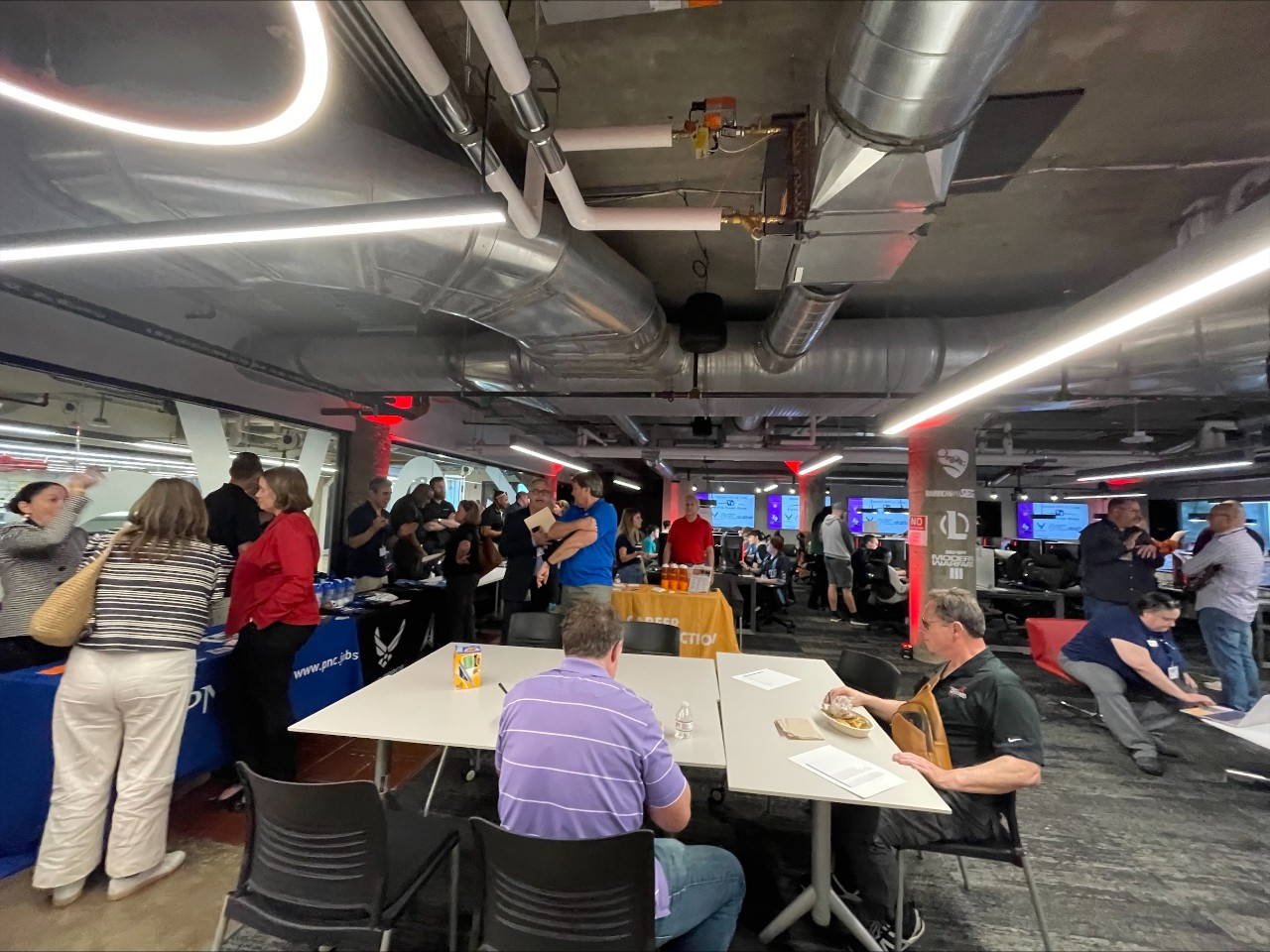
University and high school students pack the UC Esports Innovation Lab during career fair. Photo/Diana Lara
Nearly 100 neurodivergent high school and college students gathered for the first-ever Game to Career: Esports Employment Fair, an event where a passion for gaming opened doors to tech roles.
Hosted as a partnership between Cincinnati Fear and Easterseals Redwood, the fair brought together a range of employers, from the U.S. Air Force to cybersecurity startups, eager to connect with students whose gaming skills reveal their specific career strengths.
“While each person’s experience is unique, neurodivergent individuals bring valuable perspectives and skills in gaming that can drive meaningful progress in the tech world,” says Jackie Reau, CEO of Game Day Communications and president of Cincinnati Fear. “The 1819 Hub was the perfect setting for this event – it’s where talent, tech and forward thinking come together. It reflects exactly what we’re trying to do: create new pathways for students who love gaming and think differently to thrive in the tech world.”
While each person’s experience is unique, neurodivergent individuals bring valuable perspectives and skills in gaming that can drive meaningful progress in the tech world.
Jackie Reau CEO of Game Day Communications, President of Cincinnati Fear.
Rewiring innovation
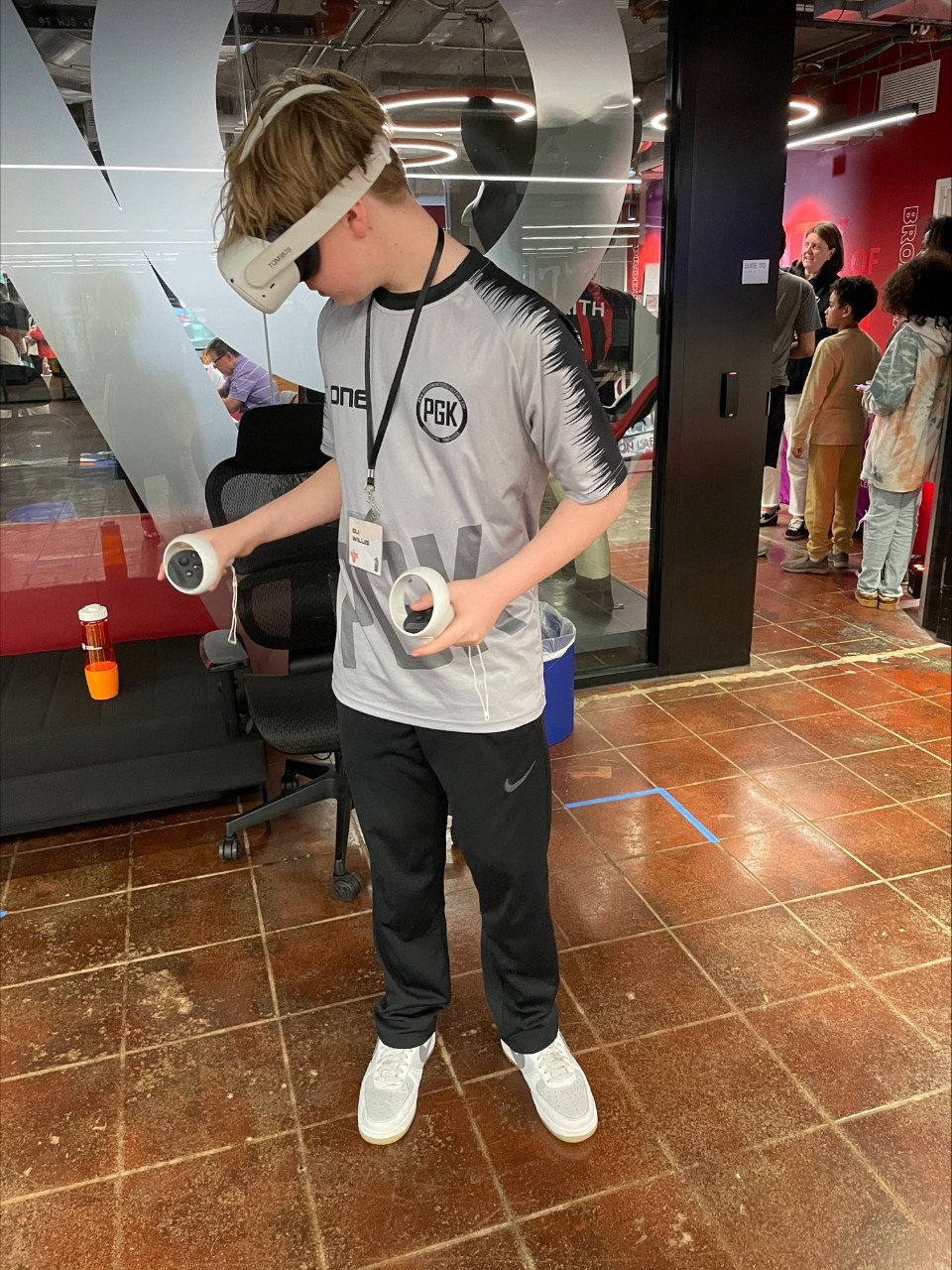
High school student explores different job roles through virtual reality. Photo/Diana Lara
Creative problem-solving and nontraditional thinking are essential for success in the tech industry, and these qualities are often abundant among neurodivergent individuals. Trends show that an increasing number of companies are recognizing the value of neurodivergent talent within this industry and others.
A new perspective on these individuals is emerging: one that moves beyond simple accommodation to truly embracing cognitive variability as a key to unlocking team performance and innovation.
According to Forbes, roughly 15-20% of people are considered neurodivergent, including those with autism, ADHD, dyslexia and anxiety. These individuals often bring strengths in pattern recognition, precision, creativity and resilience — critical assets in tech sectors like coding, data analysis and user experience (UX) design.
“When a neurodivergent student’s passion aligns with their work, their focus and precision become a powerful asset,” says Debbie Smith, vice president of economic empowerment for Easterseals Redwood.
From console to career
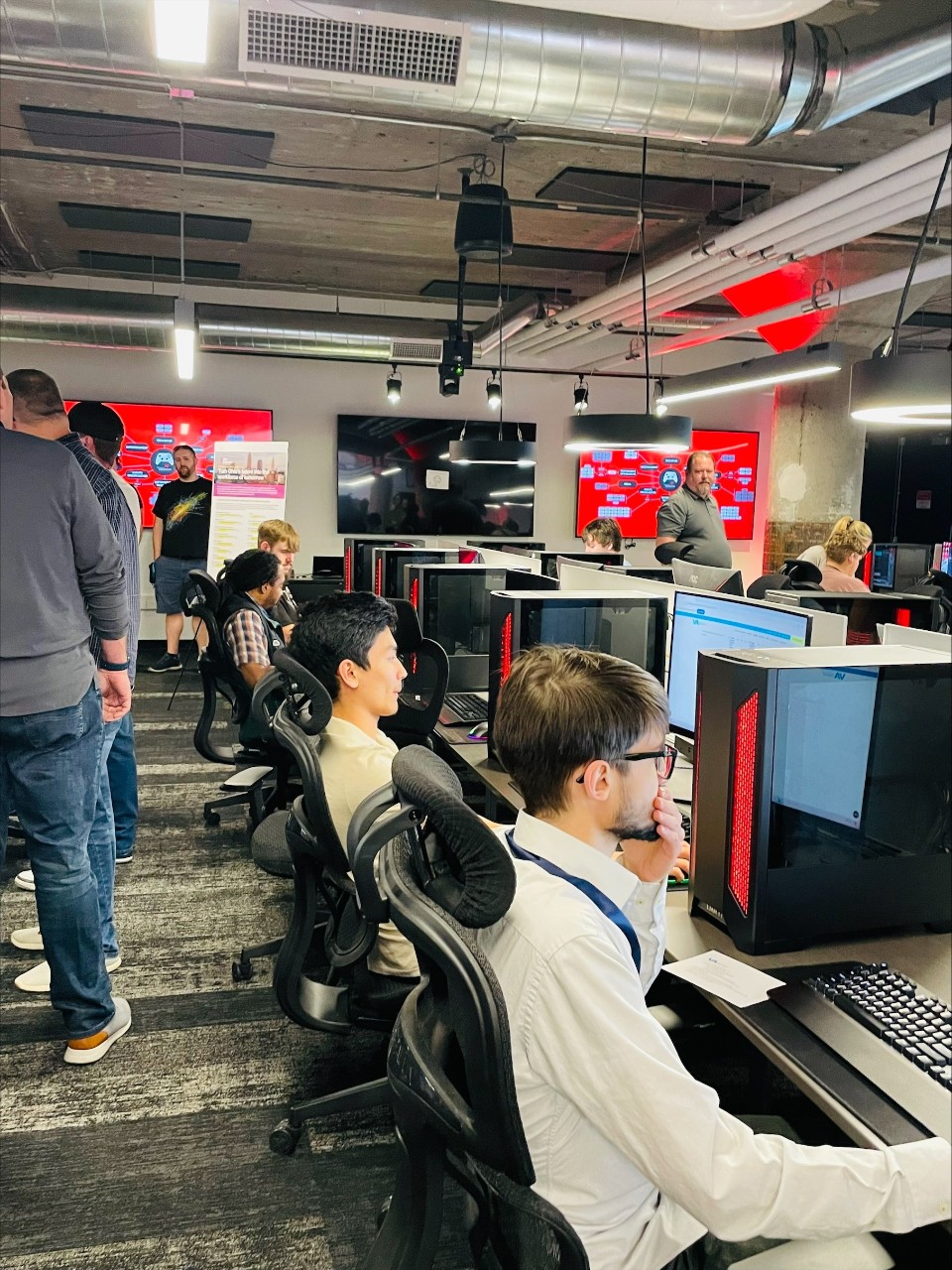
Students using Esports gaming consoles, showcase their tech and critical thinking skills in real-time to potential employers. Photo/Diana Lara
The event was more than a meet and greet; it was an immersive experience designed to bridge the gap between Esports and employment.
- Students showcased their skills in live gaming sessions at Esports consoles, giving employers real-time insight into their strategic thinking, teamwork and focus.
- Virtual reality headsets let participants explore career simulations in healthcare, public safety and other high-demand fields.
- Employers like PNC Bank, TechCore, and the U.S. Air Force shared opportunities in fields ranging from drone technology to information technology services.
- Scholarships from Easterseals Redwood allowed more students to attend and explore potential career pathways.
One student, a high school senior who had struggled in traditional classrooms, said the event was eye-opening.
“I’ve always been good at games,” they said, “but I never realized that could mean I’m good at something employers are actually looking for.”
The best minds don’t always think alike
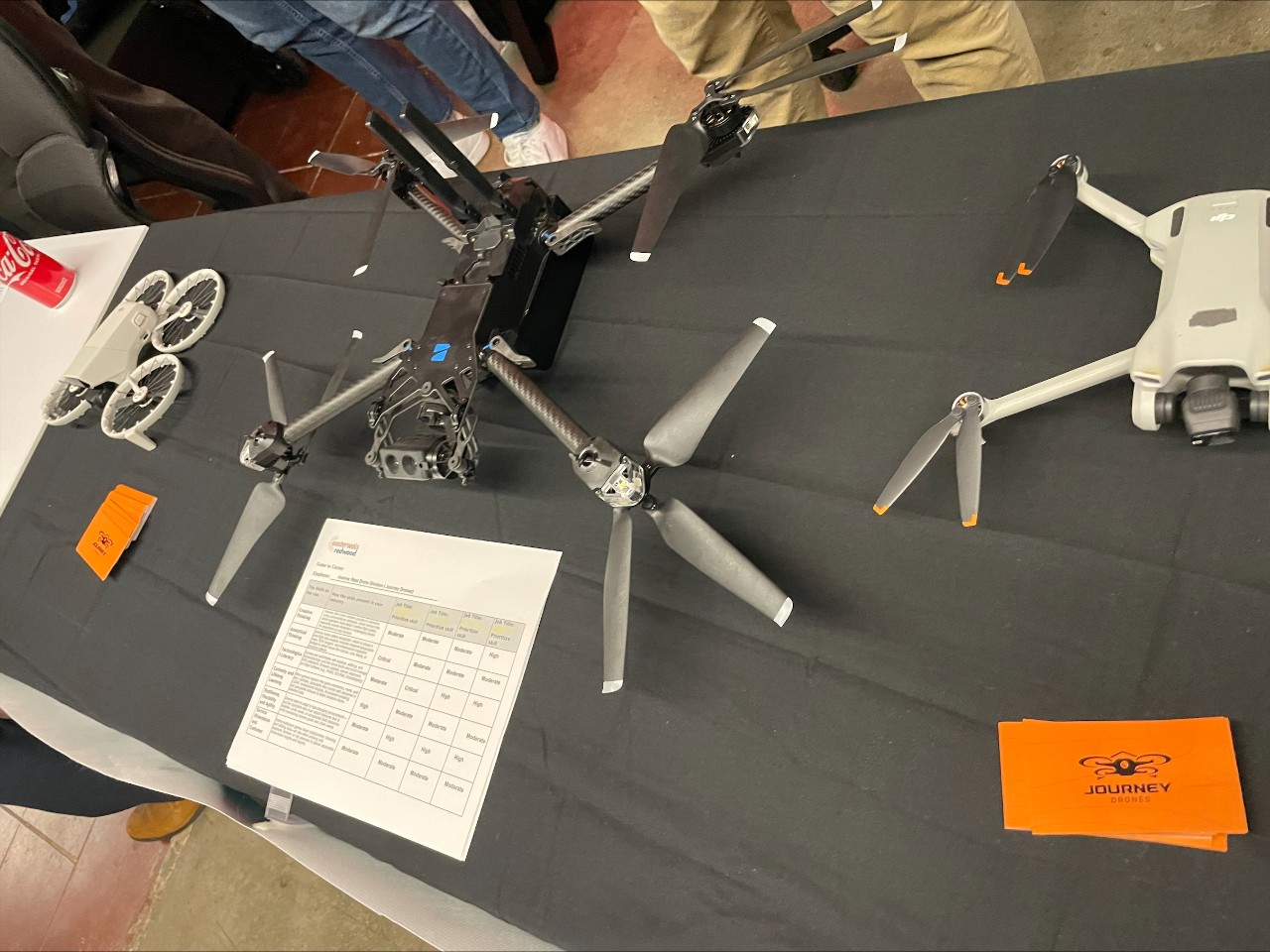
Students showed strong interest in Journey Drones, a potential employer, as they explored a variety of innovative drone models on display. Photo/Diana Lara
Too often, neurodivergent students are asked to adapt to rigid systems that overlook their strengths. Events like Game to Career flip that script, showing that when the environment changes, their talent shines.
“By connecting Esports to tech-centered employment, this event created a platform where students could see a future for themselves – one that values how they think, not just how they fit in,” Smith says.
The Esports employment fair at 1819 wasn’t just a one-off experiment; it provided a glimpse into the future. By bringing employers, educators and students together in a space that celebrates neurodiversity and nontraditional talent, the event set a new standard for how companies look for ways to compete and grow. In today’s evolving tech scene, employers may find their next breakthrough isn’t about thinking outside the box – it’s about welcoming those who felt they never fit in one to begin with.
Featured image at top: The U.S. Air Force was among the many potential employers engaging with students at the career fair. Photo/Diana Lara
Innovation Lives Here
The University of Cincinnati is leading public urban universities into a new era of innovation and impact. Our faculty, staff and students are saving lives, changing outcomes and bending the future in our city's direction. Next Lives Here.
Related Stories
Discovery Amplified expands research, teaching support across A&S
February 19, 2026
The College of Arts & Sciences is investing in a bold new vision for research, teaching and creative activity through Discovery Amplified. This initiative was launched through the Dean’s Office in August 2024, and is expanding its role as a central hub for scholarly activity and research support within the Arts & Sciences (A&S) community. Designed to serve faculty, students, and staff, the initiative aims to strengthen research productivity, foster collaboration, and enhance teaching innovation. Discovery Amplified was created to help scholars define and pursue academic goals while increasing the reach and impact of A&S research and training programs locally and globally. The unit provides tailored guidance, connects collaborators, and supports strategic partnerships that promote innovation across disciplines.
Blood Cancer Healing Center realizes vision of comprehensive care
February 19, 2026
With the opening of research laboratories and the UC Osher Wellness Suite and Learning Kitchen, the University of Cincinnati Cancer Center’s Blood Cancer Healing Center has brought its full mission to life as a comprehensive blood cancer hub.
Nursing innovation emerges as critical lever in healthcare transformation
February 18, 2026
Recognizing both the urgency and the opportunity, the University of Cincinnati (UC) College of Nursing is taking deliberate steps to position nurses at the forefront of healthcare transformation. It has created an Innovation Strategic Plan and established a dedicated Industry Advisory Board to forge the academic-industry partnerships essential to accelerating nurse-driven innovation.
